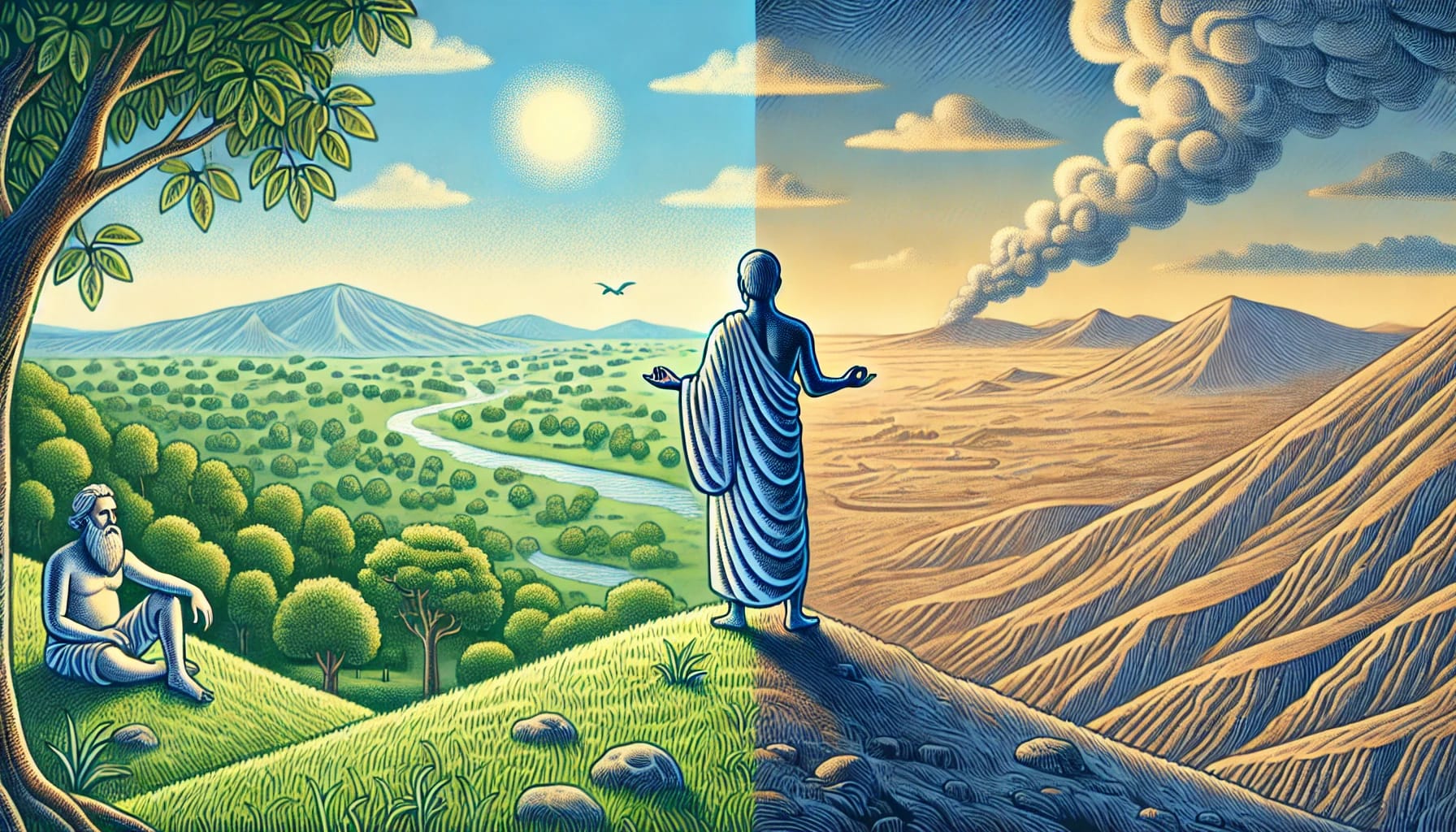Climate change is one of the greatest challenges of our time, causing widespread fear, uncertainty, and distress. Many people experience climate anxiety—a deep worry about the planet’s future and humanity’s role in its destruction. While concern for the environment is necessary, excessive worry can lead to stress, helplessness, and emotional exhaustion. Stoicism and climate anxiety might seem unrelated at first, but Stoic philosophy offers valuable tools for managing fear, fostering resilience, and taking meaningful action without being overwhelmed by despair. By focusing on what we can control, accepting what we cannot, and cultivating inner peace, Stoicism helps us navigate the climate crisis with clarity and purpose.
Understanding Climate Anxiety Through a Stoic Lens
The Stoics, including Marcus Aurelius, Seneca, and Epictetus, taught that suffering often comes not from external events but from our reactions to them. This idea is crucial when dealing with climate anxiety. While climate change is a real and urgent issue, excessive worry about the future does not change reality—it only harms our mental well-being.
Epictetus famously said: “Some things are up to us, and some are not.” This principle encourages us to focus on actions within our control while accepting the limits of our influence. We cannot single-handedly stop global warming, but we can choose sustainable habits, support policies that protect the environment, and educate others. By shifting our attention from fear to action, we regain a sense of purpose and agency.
Practicing Stoic Acceptance: Facing Reality Without Despair
Acceptance is a core Stoic virtue that helps us deal with difficult truths. Accepting that climate change is happening does not mean giving up—it means acknowledging reality without resistance or denial. This mindset allows us to think more clearly and act more effectively.
Seneca wrote: “The whole future lies in uncertainty: live immediately.” Instead of obsessing over worst-case scenarios, we should focus on the present moment. Practicing mindfulness, gratitude, and appreciation for nature can help balance awareness of the crisis with a deep sense of peace.
Turning Anxiety Into Purposeful Action
While the Stoics emphasize acceptance, they also stress the importance of virtuous action. Marcus Aurelius encouraged people to do their duty without attachment to results: “Do what you must, let happen what may.” This attitude is particularly useful when addressing climate anxiety.
Here are some ways to apply Stoic action to environmental concerns:
- Live by example: Adopt sustainable habits like reducing waste, conserving energy, and supporting ethical businesses.
- Educate without fear: Share climate knowledge in a rational, solution-focused way instead of spreading panic.
- Engage in community efforts: Support local initiatives, advocate for policy changes, and collaborate with others to create a meaningful impact.
By focusing on these constructive actions, we move beyond anxiety and become part of the solution.
Building Inner Resilience in an Uncertain Future
Resilience is key to facing the challenges of climate change. The Stoics endured wars, plagues, and political turmoil, yet they maintained their inner calm through discipline and perspective. We can do the same by practicing:
- Negative visualization: Imagine worst-case scenarios to mentally prepare without panic.
- Voluntary discomfort: Simplify life and reduce reliance on material comforts to adapt to a changing world.
- Mindfulness and gratitude: Appreciate nature and small moments of beauty, reinforcing a sense of connection rather than loss.
By strengthening our minds and emotions, we become more capable of facing climate uncertainty without despair.
Conclusion: Stoicism and Climate Anxiety
Stoicism and climate anxiety may seem like an unusual pairing, but Stoic principles provide powerful tools for navigating environmental fears. By focusing on what we can control, accepting uncertainty, and taking purposeful action, we transform anxiety into resilience and wisdom. The world is changing, but our inner peace does not have to.

